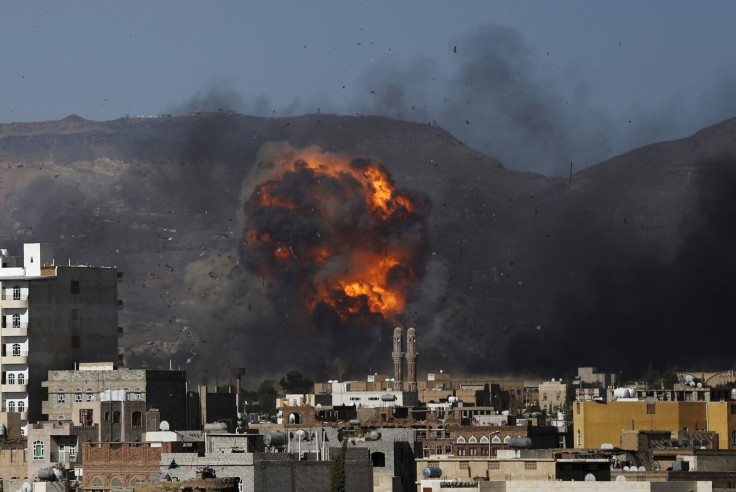Yemen Ceasefire: Violations Threaten Peace Before 5-Day Humanitarian Truce Can Even Set In

A five-day ceasefire in Yemen started shakily Tuesday, with reports of fighting in the southern city of Dhale and intense shelling in Taiz. The temporary truce was prompted by calls from humanitarian groups to allow aid to reach desperate Yemenis caught in the crossfire of a brutal civil war between northern based Houthi rebels and supporters of ousted, exiled President Abd-Rabbu Mansour Hadi. Saudi Arabia, which is leading the 11-state coalition air campaign against the Houthis, warned that it would resume its devastating campaign if the rebels violated the ceasefire, but no airstrikes had been reported as of 8 p.m. EDT.
Yemeni security officials said rebels stormed Dhale using heavy weaponry and that they reinforced their positions elsewhere in the country, according to the Associated Press. Fighting on the ground intensified leading up to the ceasefire, which took effect at 11 p.m. local time (4 p.m. EDT). The Saudi-led coalition stepped up its bombing campaign in Yemen’s northern Houthi-held capital, Sanaa, targeting Houthi positions, and reportedly killed dozens of civilians in the process. At least 69 people died in a strike on a Houthi arms depot in Sanaa alone Tuesday. The U.S. was providing logistical support for those airstrikes. About half of the 1,400 killed and 6,000 injured since the escalation of fighting in March were civilians.
International aid missions kicked into gear almost immediately after the ceasefire took effect, hoping to deliver desperately needed food, medical supplies and more to dangerously undersupplied civilian populations. A blockade by the Saudi-led coalition has prevented some aid groups from getting the supplies they need to distribute aid already in Yemen. A fuel shortage all but completely stalled the many aid missions, but the World Food Programme planned to bring in hundreds of thousands of liters into Yemen during the ceasefire.
An Iranian supply ship that officials claim is packed only with aid was steaming towards Yemen, escorted by Iranian warships, prompting speculation that Iran was moving in weapons for Houthi rebels under the guise of a humanitarian mission. The U.S. asked Iran to dock in Djibouti instead and allow a United Nations supply mission there to deliver the aid across the Bab-el-Mandeb strait to Yemen. The Iranian ship was scheduled arrive in the region by the end of the week.
© Copyright IBTimes 2025. All rights reserved.






















